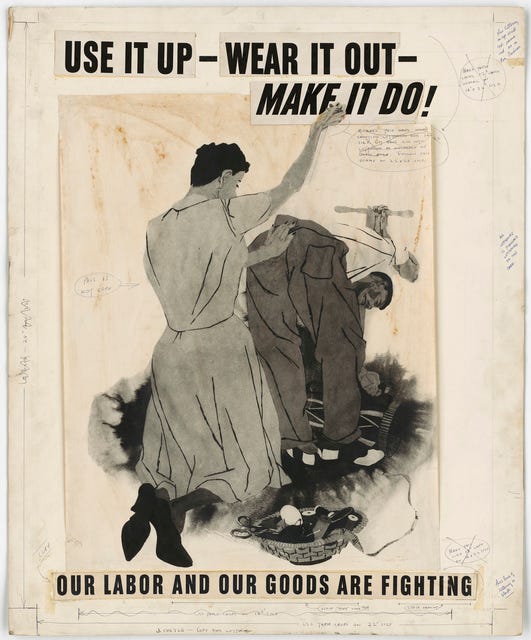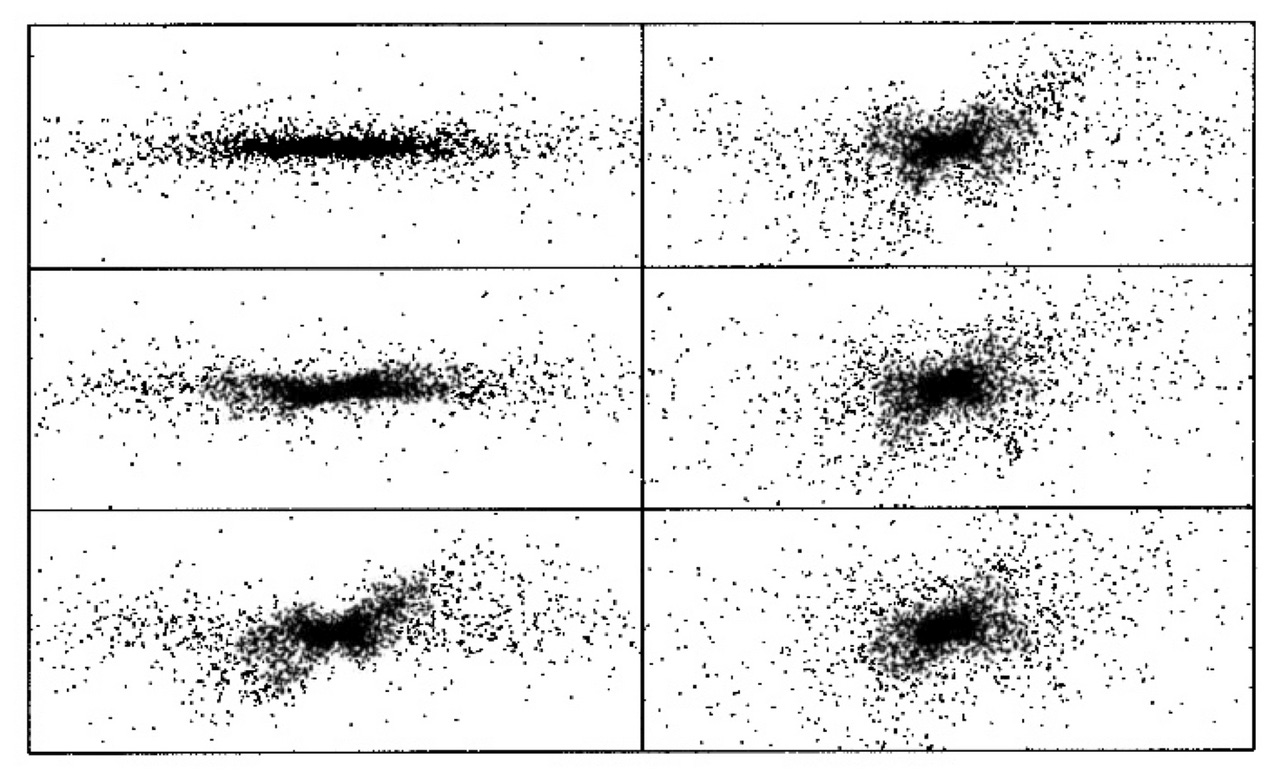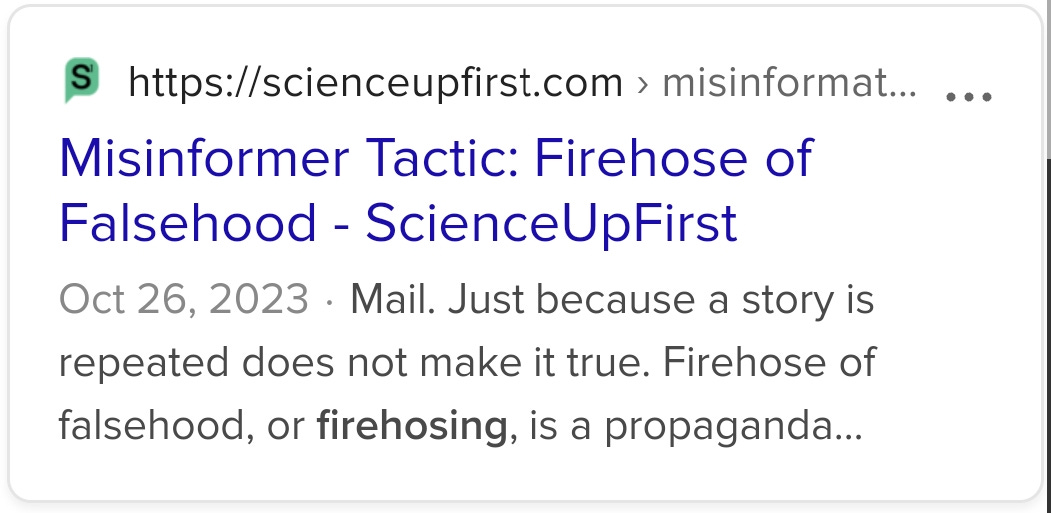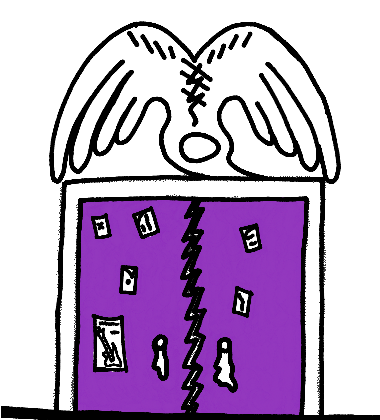Introduction
Do me a favour, would ya? Pull out your phone and Google, no, wait, DuckDuckGo the term "firehosing". What's among the first results? Something about Russia? A RAND report from 2016? Propaganda is a funny thing—it can be a complete mystery to external observers. I wanna delve into what propaganda really is so we're on the same page.
Defining Propaganda
The following is a combination of some of the top definitions of propaganda. Think of it as a mix tape, a best of:
The systematic and concerted dissemination of information, messages, or material by individuals, organisations, or institutions aimed at influencing the opinions or behaviour of large numbers of people to promote or win support for a doctrine, cause, theory, or method of action, reflecting the views and interests of those advocating it.1
There were definitions I came across that included "deception" and "lying," but I don't roll with those. It's redundant to include caveats such as these. Why? Well, for one, who is the arbiter of truth? What does deception mean, exactly? The only effect this has on any discussion on propaganda is to reduce it to a mindless game of semantics while distracting away from meaningful back-and-forth.
Propaganda Without Deception
Besides, lying and deception are optional elements of propaganda. It exists perfectly fine without them. This may not be common knowledge, but wars consume immense resources. Food, fuel, rubber, various metals, and other materials are critical. During World War II, Allied forces had to ensure they had enough of all the necessary resources to last the duration—however long that would be. To achieve this, governments used propaganda to convince citizens to conserve everything they could. They used slogans such as:
"Save Fuel for Battle"2

"Plant a Victory Garden"3

"Use it Up, Wear it Out, Make it Do, or Do Without"4

They also organised drives to collect scrap metal and other resources. What they didn't do was lie. The information they provided during these efforts was factual. It would seem as though honesty is the best policy, especially during such dire times. In the end, it got everyone to work together and increased morale overall.
The Power and Impact of Negative Propaganda
In 1957, the tobacco industry started going up in smoke. This was a critical juncture as it was when causality began entering the arena between cigarette smoking and lung cancer. While the tobacco industry spun up negative propaganda efforts, even stooping to recruiting medical doctors and academics to defend them, the Surgeon General's Advisory Committee stepped up by smashing out positive propaganda. From the release of the committee's report in 1964 followed the burgeoning decline of smoking.5
Unfortunately, negative propaganda has been more effective. I'm not being pessimistic, simply observing. It's easier for us to do things that are not good for us. If we use the previous example, the tobacco industry actively fought against the smoking-cancer link for more than 40 years! People still smoke to this day. Compare that 40 years versus the initial effort to get people smoking in the first place. It's something you don't hear about.
If you want to read about some of the tobacco industry's tactics in more detail (read: skydive down the rabbit hole!)—which are still in use to this day, mind you, check out the following link:
Subtle Influence vs. Overt Persuasion
If you have resources and a message to spread, propaganda is your best friend. If you're the recipient of negative propaganda, it can be draining and detrimental to mental well-being. Effective propaganda, however, isn't necessarily about bashing someone over the head with an opinion. It's more about subtle influence.
Think of it as the difference between someone aggressively pushing their beliefs onto others versus someone planting seeds of positive habits and encouraging healthy behaviors with their friend. Which do you think would be most effective? Which do you think would be most visible?
Questioning Perceptions of Propaganda
If you had to guess, which country do you think has the most effective propaganda? If your first thought was Russia, you'd be one of many—many in the US and its allies (Five Eyes, Nine Eyes, Fourteen Eyes, etc.) would probably say the same. Could it be, though, that the US and its allies are simply projecting their own propaganda techniques onto others? We should step outside ourselves on occasion and be aware of why we think the way we do about others—especially when there's constant media pushes for particular narratives. Consider the repetition and other elements and whether our opinions are entirely our own, based on facts, or whether they're being subtly, or even overtly, moulded.
Delving into the RAND Report
Serious Mode Engaged
Curiosity led me to the RAND Corporation's report titled "The Russian 'Firehose of Falsehood' Propaganda Model." This is the report I mentioned at the beginning of the article—the one that shows up first when you search “firehosing.” Given its prominence in search results and discussions around "firehosing," I wanted to understand the basis of its claims.
As I read through the report, I noticed a lack of concrete evidence supporting what they were claiming. The authors frequently used tentative language—phrases like "possible explanations," "might contribute," and "potential to be highly effective"—without providing substantial data to back up their claims about Russian propaganda.
For example, the report states:
RT, formerly Russia Today, is one of Russia's primary multimedia news providers with a budget of more than $300 million per year. It broadcasts in English, French, German, Spanish, Russian, and several Eastern European languages. The channel is particularly popular online, where it claims more than a billion page views. If true, that would make it the most watched news source on the Internet.
The phrase "if true" suggests that the authors didn't even verify this claim, raising questions about the thoroughness of their research.
Additionally, the report mentions:
Radio Free Europe/Radio Liberty reports that there are thousands of fake accounts on Twitter, Facebook, LiveJournal, and Vkontakte maintained by Russians.
This claim relies on a secondary source without providing concrete evidence or data to substantiate the number of fake accounts or their impact. The lack of direct evidence or detailed analysis left me questioning the validity of these pretty substantial assertions.
The report leans way too much on psychological theories to explain why such propaganda might be effective, citing experimental research to suggest that high-volume and multichannel messaging can be persuasive. For instance, it states:
Multiple sources are more persuasive than a single source, especially if those sources contain different arguments that point to the same conclusion. People assume that information from multiple sources is likely to be based on different perspectives and is thus worth greater consideration.
While these may very well be valid psychological concepts, the report doesn't provide concrete instances where Russia has employed these tactics to measurable effect. It stops short of demonstrating direct causation or offering specific examples of these strategies in action.
Moreover, the report asserts:
Russian propaganda makes no commitment to objective reality.
And:
Russian propaganda has relied on manufactured evidence.
Yet, it doesn't offer detailed examples of such manufactured evidence or explain how this differs from propaganda techniques used by other nations. The assertions are broad and lack the specificity needed to substantiate such claims exclusively about Russia.
It felt as though the report was describing general propaganda techniques—high-volume messaging, rapid dissemination, lack of commitment to objective reality—but slapping a "Made in Russia" sticker on them, without acknowledging that these methods aren't unique to any one nation. The reliance on speculative language and absence of concrete evidence made me question the objectivity of the report.
I began to wonder—is the report inadvertently engaging in the very tactics it describes? By repeatedly associating these propaganda techniques with Russia, without robust evidence, it could be shaping perceptions through repetition and authority. It felt like I was being bashed over the head with someone's opinion and told it was fact. This approach might contribute to a one-sided narrative, potentially influencing readers to accept these claims without critical examination.
By highlighting these concerns, it becomes evident that critical thinking is essential when engaging with such reports. It's important to scrutinise sources, dig deeper, and consider multiple perspectives to get a well-rounded understanding of complex issues like propaganda and information warfare.
The RAND report's approach raises important questions about how narratives are constructed and the potential for projection in attributing certain behaviours to others. By emphasising Russia's use of propaganda techniques without robust evidence, the report might be engaging in the very tactics it critiques.
What are the potential implications from all this?
Projection—No, You're Using Tactics!
The report may be projecting the use of widespread propaganda techniques onto Russia, possibly diverting attention from similar practices employed by other nations, including the U.S.
This projection can serve to deflect scrutiny from one's own methods of information dissemination and control.
The Shape of Public Perception
By repeatedly associating "firehosing" with Russia, the report influences readers to link the term—and its negative connotations—primarily with a specific country.
This can contribute to a one-sided narrative that overlooks the complexity of global information warfare.
Biases Are Reinforced
The lack of concrete evidence and reliance on speculative language can reinforce existing biases and stereotypes, rather than fostering a nuanced understanding of propaganda.
Trust, Eroded, Our Shopping Trolley, Gone
When authoritative sources present unsubstantiated claims, it can erode public trust in institutions and reports, making it harder to discern credible information in the future.
By critically analysing the report, we recognise the importance of examining our own practices and being cautious of how projection can warp our understanding of others. It's essential to strive for objectivity and solid evidence when discussing topics as significant as propaganda, to avoid perpetuating misinformation or biased narratives.
Historically Broad, the Usage of "Firehosing"
First came the Fire Hose
The fire hose was invented in the middle of the 19th century—for those of you like me who have to stop and think about this century nonsense, that means around 1850. In the late 1860s, things really started to heat up, er, I mean cool down, on account of all the water and such. Prior to fire hoses being invented, these poor saps were lugging around buckets and pumping water by hand.7
Fire hoses, as most of you are probably aware, at least in this day and age, shoot out water with a lot of pressure—a lot of water in a short amount of time. Water beats fire. Anyone who's played Pokémon can attest.
Firehosiery
Somewhere between the 1850s and the 2000s (or probably before), some smart alec thought it'd be a good idea to join the two words in holy matrimony. This then doubled the utility of the term, "firehose" or umm, "fire hose." In no time flat, people were using it all over the place. It was a madhouse that only a good firehose or fire hose could stop. Through all the chaos, the core meaning remained the same—a whole lot of stuff in a short amount of time.
It's used in physics8

In Academia9

and corporate environments10

as well as in IT and cybersecurity and Amazon's Kinesis Data Firehose (which has been slightly rebranded). Let's also not forget Twitter's Firehose API.
As you can see, the term "firehose," or "firehosing" has been used in many different contexts over a number of decades to describe, for all intents and purposes, a state of excessive information flow.
Irony and Projection in Propaganda Narratives
So why then, when you search the term "firehosing" online, is the first result about Russia?
Irony, probably.12
Perhaps focusing on another nation's use of propaganda serves as a convenient distraction from similar practices closer to home. By associating "firehosing" predominantly with Russia, are we projecting our own methods onto others?
Conclusion
In examining the history and usage of "firehosing," it's clear that the term encompasses far more than its recent associations suggest. Propaganda, whether positive or negative, truthful or deceptive, remains a powerful tool. By critically assessing the information we receive and acknowledging the nuances of influence, we can navigate the deluge with a clearer perspective.
As we're bombarded with waves of information every day, sharpening our critical thinking isn't just helpful—it's absolutely crucial. The way terms like "firehosing" are framed and the stories built around them can seriously shape how we see things.
Don't just swallow information whole. Think about who's telling you this stuff and why.
Ask yourself—what's their agenda? Do they have evidence to back up their claims?
Don't get stuck in a bubble. Seek out different perspectives, especially from places you don't usually check out.
Tuning into international media, independent journalists, and expert analyses can give you a more well-rounded view.
Words carry weight. The way events or ideas are described can nudge your perceptions in subtle ways.
Consider whether terms are being used to inform you or to persuade you.
We all have our own preconceptions, and they can colour how we interpret information.
Aim for objectivity by staying open to ideas that challenge your views.
Chat with others about these topics. Sharing insights and hashing out different viewpoints can deepen your understanding and reveal nuances you might've missed. Most importantly, don't be afraid to have actual discussions! People seem to be allergic to it, and the only antidote is to stop being a dope and engage instead of all the fallacious nonsense we see most everywhere online.
By embracing critical thinking and staying aware of how narratives are crafted, we can navigate the craziness of the information age more effectively. It's not about distrust—it's about fostering a healthy scepticism that pushes us to seek the truth beyond the surface-level stuff.
That's it for now.
As always,
Good luck,
Stay safe, and
Be well.
See ya!
Based on definitions from The American Heritage Dictionary of the English Language (5th ed.), The Century Dictionary, and WordNet 3.0.
References:
Houghton Mifflin Harcourt. (2011). The American Heritage Dictionary of the English Language (5th ed.). Houghton Mifflin Harcourt Publishing Company.
Whitney, W. D. (Ed.). (1889). The Century Dictionary: An Encyclopedic Lexicon of the English Language. The Century Co.
Princeton University. (2010). WordNet 3.0 [Database]. Princeton University.
Save Fuel for Battle [Poster]. (ca. 1939-1945). Her Majesty's Stationery Office (Publisher); Fosh and Cross, London (Printer). Imperial War Museums, London, United Kingdom. Catalogue number Art.IWM PST 3716.
United States. Office of War Information. Division of Public Inquiries. (1943). Plant a victory garden: Our food is fighting: A garden will make your rations go further [Poster]. Washington, D.C.: United States Office of War Information. UNT Digital Library. https://digital.library.unt.edu/ark:/67531/metadc550/m1/1/
National Archives and Records Administration. (n.d.). Use it up—Wear it out—Make it do! Our labor and our goods are fighting. [Poster]. https://nara.getarchive.net/media/use-it-up-wear-it-out-make-it-do-our-labor-and-our-goods-are-fighting-d56f0c?zoom=true
Cummings, K. M., & Proctor, R. N. (2014). The changing public image of smoking in the United States: 1964-2014. Cancer epidemiology, biomarkers & prevention : a publication of the American Association for Cancer Research, cosponsored by the American Society of Preventive Oncology, 23(1), 32–36. https://doi.org/10.1158/1055-9965.EPI-13-0798
Paul, C., & Matthews, M. (2016). The Russian "firehose of falsehood" propaganda model: Why it might work and options to counter it. RAND Corporation. https://www.rand.org/pubs/perspectives/PE198.html
Fornell, David P. Fire Stream Management Handbook. Saddle Brook, N.J: Fire Engineering, 1991. Print.
Merritt, David R. N-body simulation of a firehose-unstable elliptical galaxy. Wikimedia Commons, 29 April 2009. Public domain. https://commons.wikimedia.org/wiki/File:FirehoseNbody.png.
The Freshman Fishwrap / IHTFP Hack Gallery. Fire Hose Drinking Fountain. Building 16, MIT, 1st floor lobby, 9 Dec. 1991.
AI-generated illustration depicting corporate onboarding 'firehosing' from the 1970s to present. (2024). [Generated by ChatGPT's DALL·E tool].
X (formerly Twitter) Brand Toolkit. Who We Are, X Corp. Accessed October 2, 2024. https://about.x.com/en/who-we-are/brand-toolkit.
Screenshot, taken by yours truly.








My shopping trolley: murdered. My groceries just gone!
Really good article. I have a saying which hits the same nail on the head: The truth is the best propaganda.
To preface, I'm no fan of Russia. I'm no fan of my own government for that matter, but for all their faults at least leaders of opposition parties don't get poisons with radioactive isotopes or thrown out windows.
That said, I don't know how much Russian propaganda is overblown and how much is just the fact that Russian are really good at propaganda. The west is as well, but it seems while the US and its allies are good at propagandizing their own people, Russia is good at propagandizing westerners. They seem to understand how to use our lack of critical thinking against us, probably because they've been the victims of it for so long. They get something about our mindsets that we don't and use it against us.
One example is the Russian bots. I don't know how many times I've been accused of being a Russian agent, and no matter how I go through the fact that it doesn't make any sense; that the Kremlin wouldn't hire someone to troll a comment section that only 4 people would look at, that you can look at my profile and see months of content showing where I'm from, that I know way too much about where I'm from to be from anywhere else, it never makes a difference. If someone decides I'm working for the KGB, that's it. Their minds made up. Yet I've never ever seen someone successfully identify a Russian agent before. I haven't, except maybe once but I wasn't sure. The fact that westerners can't protect themselves from Russian trolls even when there aren't even any in the room says a lot about how bad we are at combating them.
The fact is, propaganda is common because it works. It's useful. Everyone always thinks it's everyone else that's the victim of it, but they're not. And the best way to combat it is to do the opposite and realize we all fall for it at least a little. I have a meme I can't post here but I will in your other comment that fits nicely.